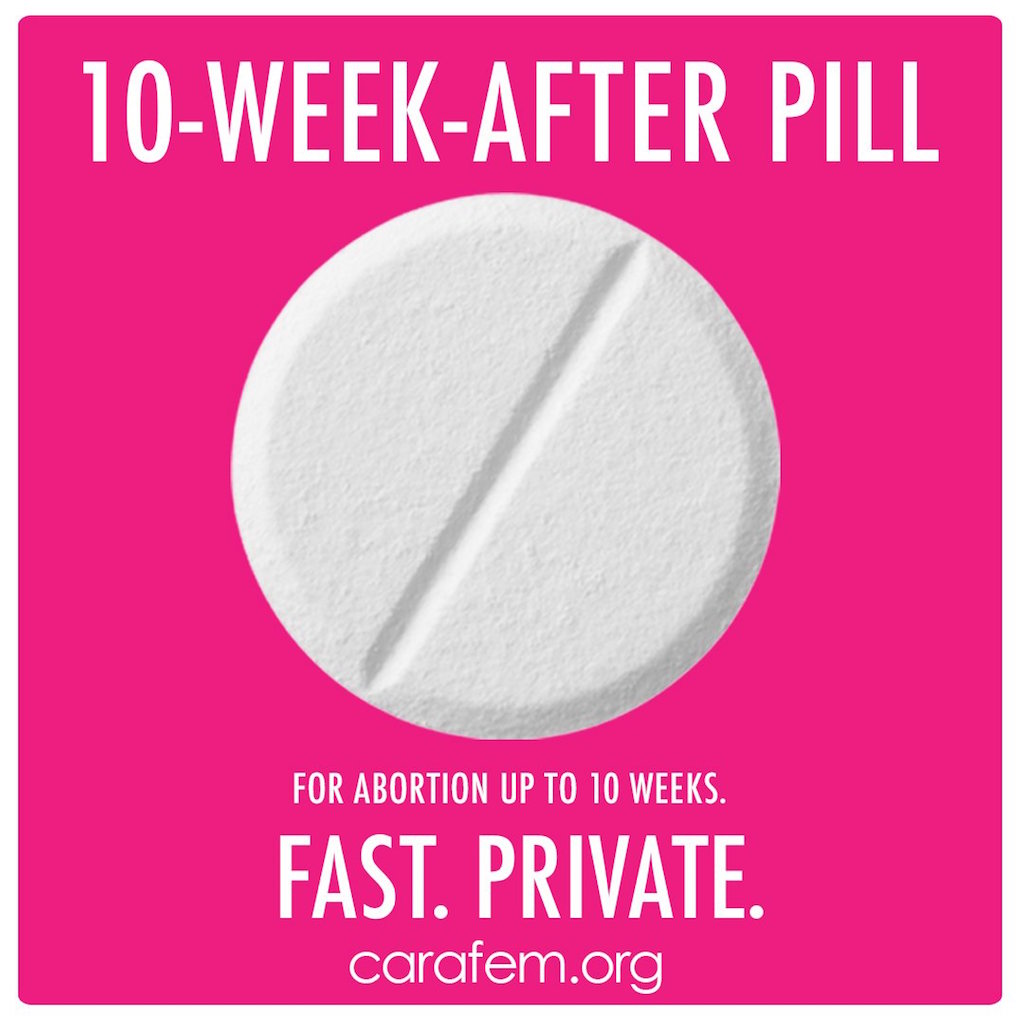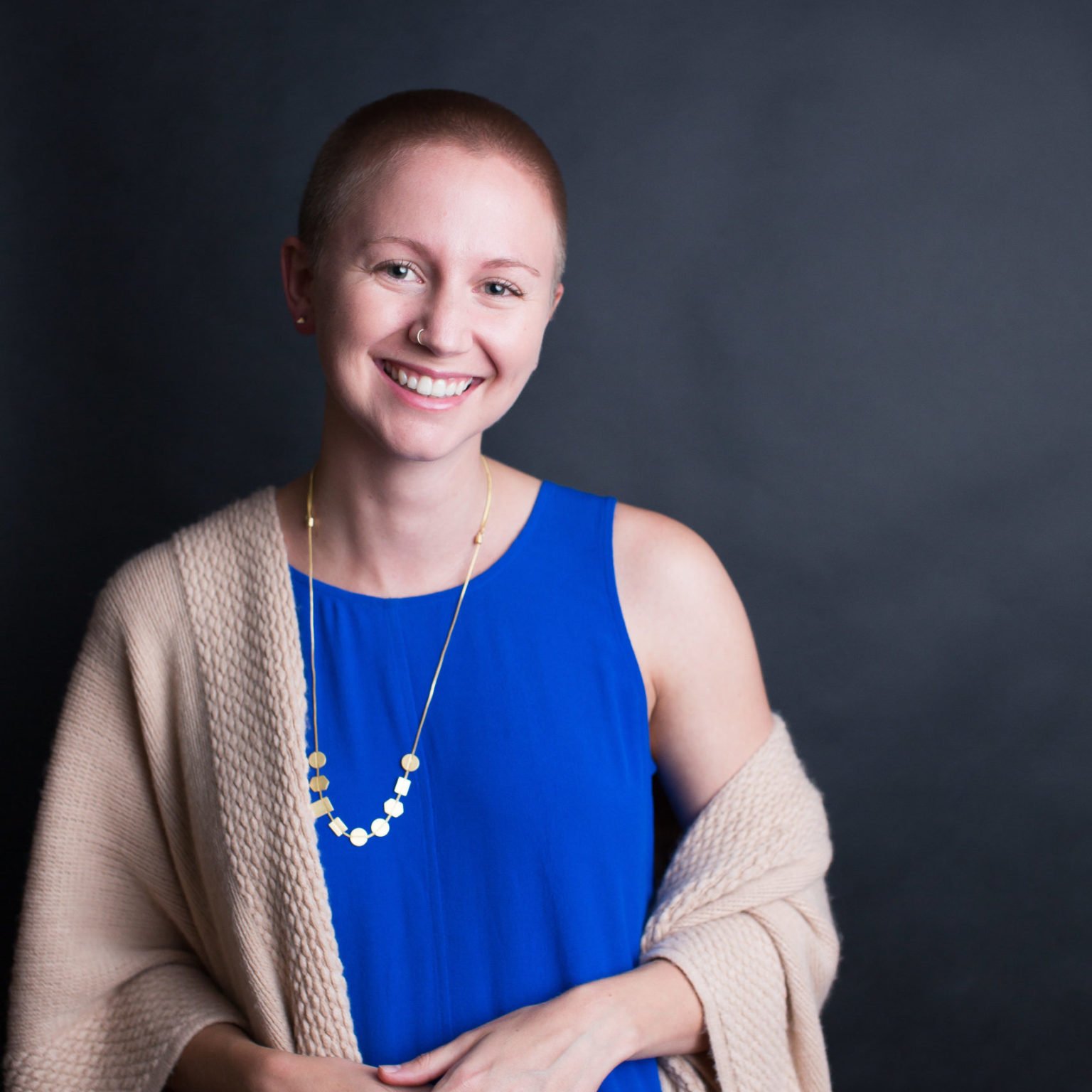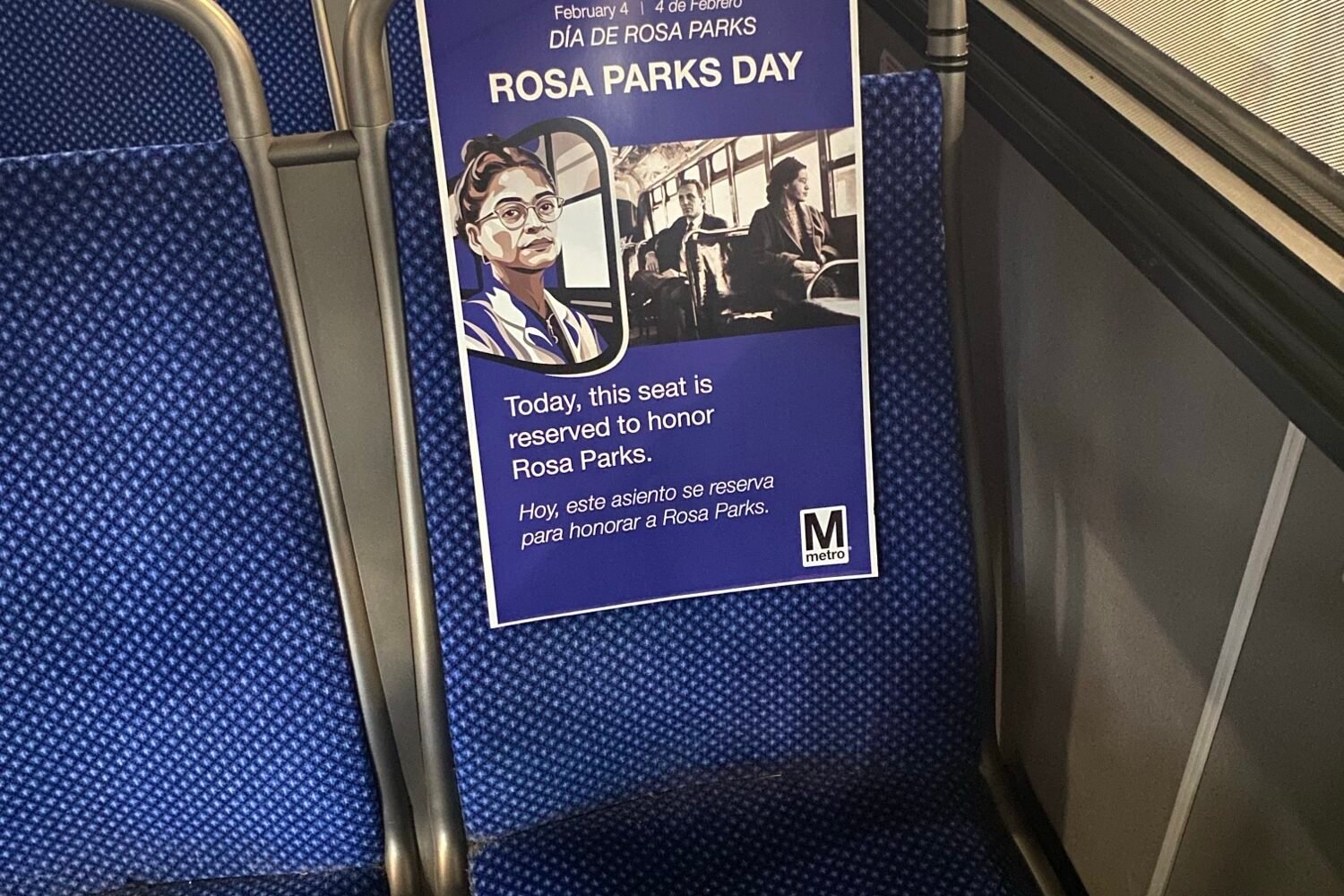Last Friday, the Washington Post reported that Metro officials have refused to run ads in Metrorail stations from Carafem Health Center, a Chevy Chase-based clinic that offers abortion and birth control services.
The banners advertise the availability of an abortion pill, which Metro claims violates its ban on political advocacy because it is “issue-oriented.” Metro also cited part of its advertising guidelines, which were updated in 2015, to justify the ban: “Medical and health-related messages will be accepted only from government health organizations, or if the substance of the message is currently accepted by the American Medical Association and/or the Food and Drug Administration.”

The thing is, the pill that Carafem is advertising to potential clients is approved by the FDA. And as Melissa Grant, vice president of health-care services for Carafem, told the Post, the ad is not inherently political. “All we are doing is trying to get the word out to potential clients,” Grant said. Carafem had planned to spend $23,520 on the ads, which were set to come out at the beginning of the year–coinciding with a lot out-of-towners arriving for the inauguration.
I spoke to three Metro spokespeople in an attempt to clarify how Metro decides which ads are “issue-oriented” and thus not allowed. When pressed on the issue, all referred me back to the guidelines.
This is not the first time Carafem has been blocked from advertising in Metro stations. In October 2015, the clinic tried to run its bright pink banner ads but was initially denied. After the Post inquired about the decision, Metro reversed the ban, saying the rejection was a misunderstanding. Now, Metro is saying the 2015 reversal was a mistake.
This all comes after a permanent decision by Metro officials to ban all political or issue-based advertisements following an announcement by Pamela Geller, an anti-Islam activist, that she would be purchasing ad space to display the winning artwork from a “Draw Muhammad” contest she staged in Garland, Texas in May 2015. (Depictions of the prophet are barred by Islamic law.) The contest made headlines after two gunmen started a firefight with security guards outside the venue hosting the event. While both gunmen were killed, the terror group ISIS claimed responsibility for their actions.
Rather than ban Geller’s ads, specifically—which is prohibited by federal courts—Metro chose instead to apply a blanket ban to all political advocacy ads. Ironically, by making a decision it hoped would stave off further controversy, the agency’s murky policies are proving to attract more attention and outrage. (Metro is eager, however, to take ads for alcohol.)
Further, by labeling a description of a form of women’s healthcare as political, the agency is contributing to the stigma around abortion and limiting access to information about the legal, FDA-approved prescription.
Grant told the Post that her company has not ruled out legal action against the agency; Carafem told Washingtonian it had nothing to add to what it told the Post.




















